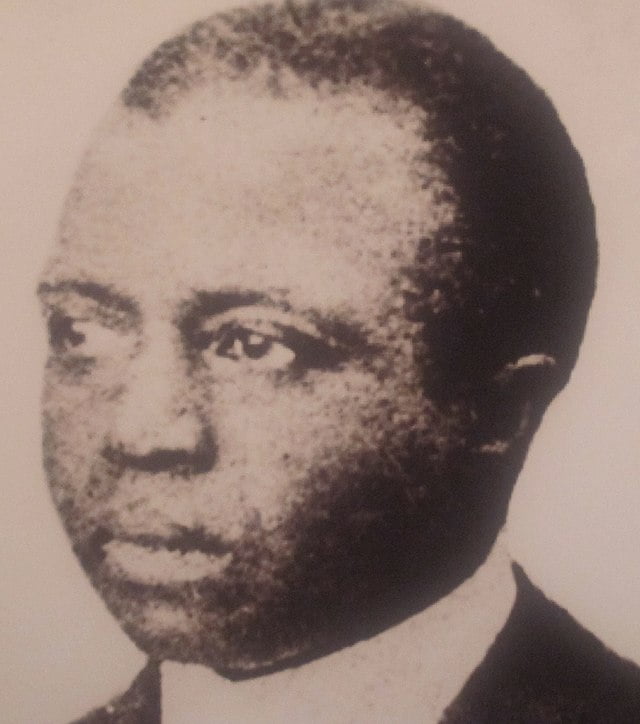Scott Joplin grew up in a musical family and learned how to play the guitar and piano at a young age. Later, he became a vocalist. In his teenage years, Joplin began touring, and playing in bars & dance halls, which helped the development of Ragtime.
During his travels, Joplin composed some of the biggest hits that defined his career. In this post, read more about them.
Become an insider. Subscribe to our newsletter for more top trending stories like this!
People Also Read: Freedom’s Journal: What the First Black Newspaper in America Meant to Black People
Treemonisha (1911)
Away from Ragtime, Scott Joplin also pursued Opera. Treemonisha was his second Opera after his first opera A Guest of Honor – and is considered – the first grand opera done by an African American. Unfortunately, it didn’t receive a full-stage audience and was only presented as a scaled-down project.
In 1972, the opera was performed at the Houston Grand Opera. Four years later, Joslin was posthumously awarded the Pulitzer Prize and Lenny Henry hailed him for breaking the traditional narrative of most opera songs. The heroine becomes a community leader, unlike most where the heroine dies desiring a man.
People Also Read: Who Were the Afro-Mexican Revolutionaries? Top 5
Buy a guitar on Amazon.
Stoptime Rag (1910)
In this song, Joplin borrowed Jazz’s concept of stop-time, a pattern interruption leading to silence or instrumentals. It enhances the rhythmic flow of the music. He also allowed performers to stomp their feet and produced a rich harmony.
People Also Read: Least Known Facts About Mansa Abubakari II Exploration
You can get musical instruments on Amazon.
Solace (1909)
Solace was a unique piece by Scot Joplin because he used a tango rhythm. It was part of his 1973 soundtrack, The Sting, through which it regained its popularity. It’s also featured in the 2013 video game Bioshock Infinite.
Bethena: A Concert Waltz (1905)
Bethena: A Concert Waltz must have been an emotional song for Scott Joplin. It was the first song he wrote after his wife’s death. Unfortunately, it wasn’t a hit but Joshua Rifkin’s work brought it to the limelight again. He fused it into his classic waltz through which Joslin received lots of praise.
Become an insider. Subscribe to our newsletter for more top trending stories like this!
Join our Spotcovery Global Black Community Facebook Group for early access to exclusive content and to share in a lively discussion.
The Ragtime Dance (1902)
Joslin’s Ragtime Dance became a classic after violinist Itzhak Perlman rearranged the composition for violin and piano. He worked with pianist Andre Previn, who elevated the piece and made it memorable.
The Entertainer (1902)
Scot Joplin wrote ‘The Entertainer’ in 1902. The song first came out in the 1910s as printed music by John Stark & Son. It came back to prominence in the 1970s after it was used in The Sting, an Oscar-winning film, starring Paul Newman and Robert Redford. The song features in the Recording Industry Association of America Songs of the Century.
People Also Read: Booker T. Washington: 7 Facts You Probably Didn’t Know
You can get a piano on Amazon.
Maple Leaf Rag (1899)
This was Scott Joplin’s most successful song. In 1899, he wrote Maple Leaf Rag in honor of the Maple Leaf Club in Sedalia. He also protected his earnings after losing money in a previous rag, Originals Rags. With a lawyer’s help, Joplin was able to earn all his royalties, although it wasn’t that much.
Scott Joslin was a tremendous music composer whose works captured the imagination of his listeners. Some became famous after they were picked up by other singers but that’s also a testament to his musical abilities. He’s among the greatest ragtime musicians in the world.
Nearly 80% of consumers visit directories with reviews to find a local business. List your business for free in our exclusive Spotcovery Black-Owned Business Directory.
Spotcovery offers unique and fresh daily content on Black culture, lifestyle, and experiences. We talk about everything black, black people, black-owned and black-owned businesses. We also deliver authentic and relevant content that will inform, inspire, and empower you! The future of black media is critical to today’s black experience! Our primary audience includes African Americans, Africans, Afro-Caribbean, and people of African heritage. Black culture is for the culture!
Become an insider. Subscribe to our newsletter for more top trending stories like this!





